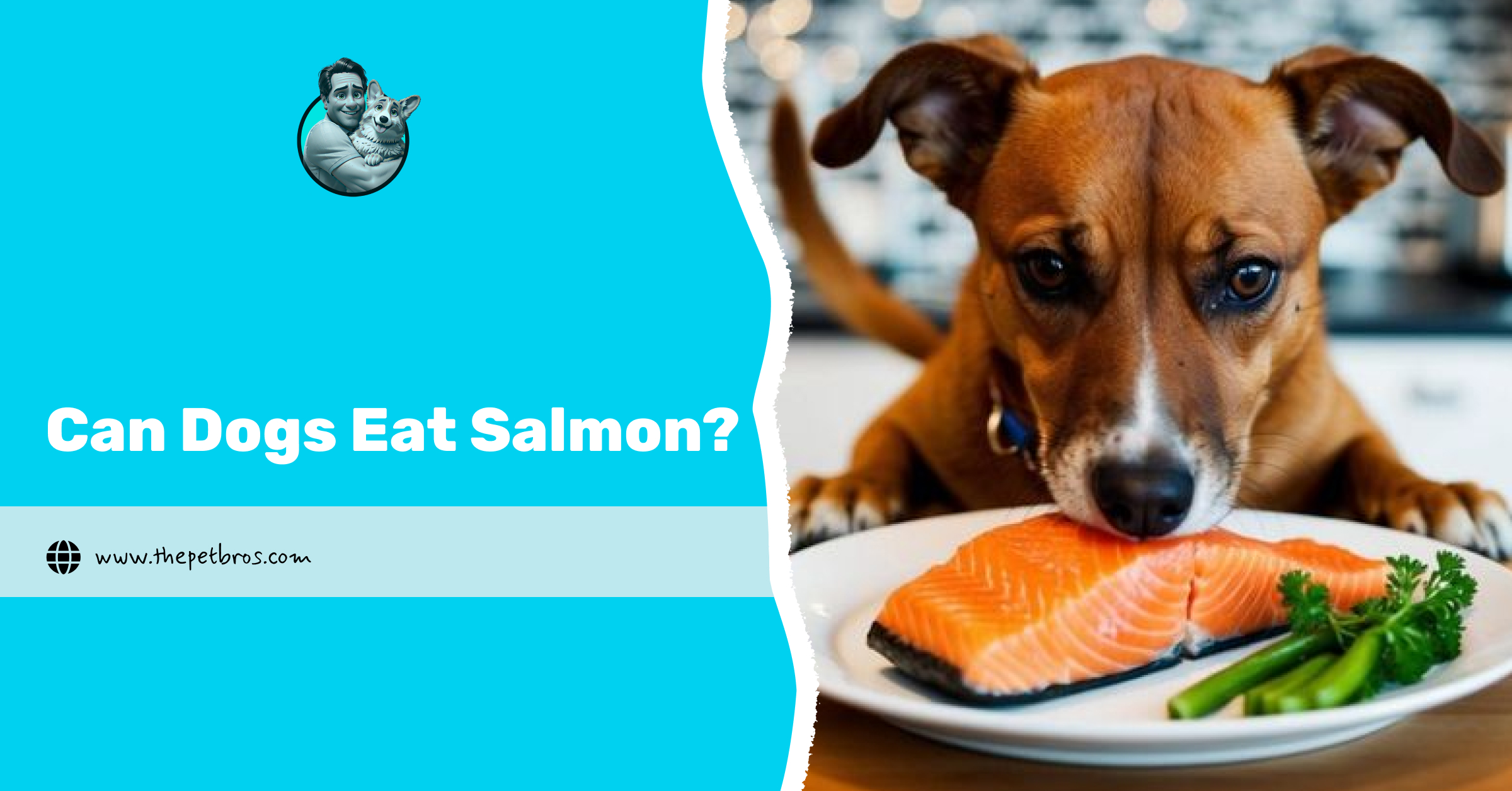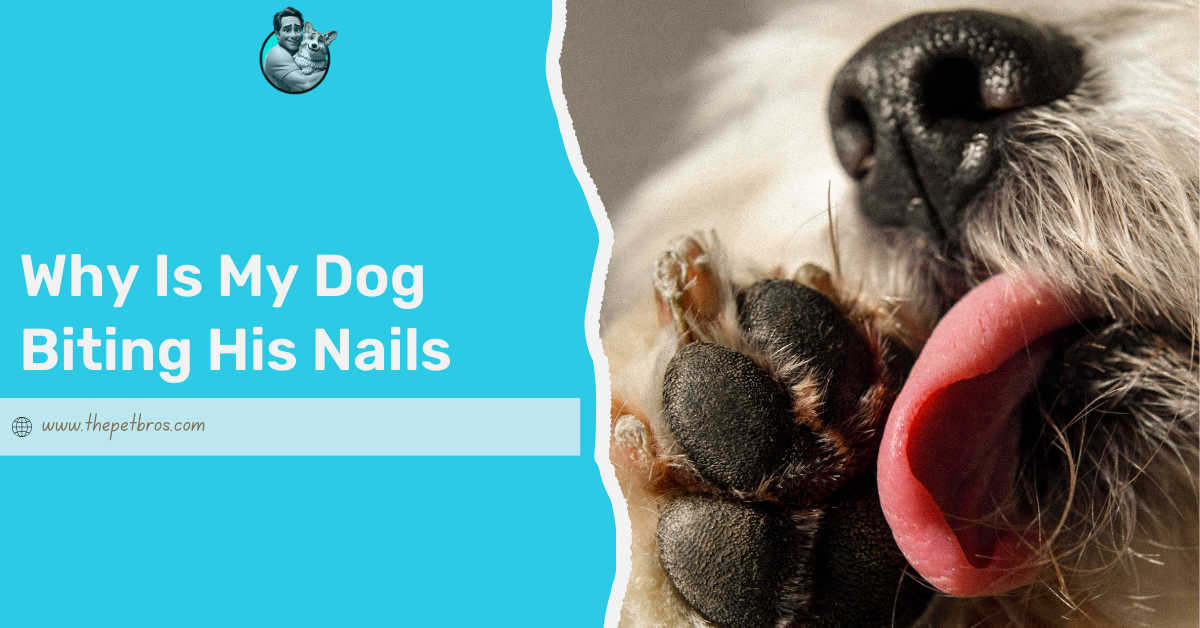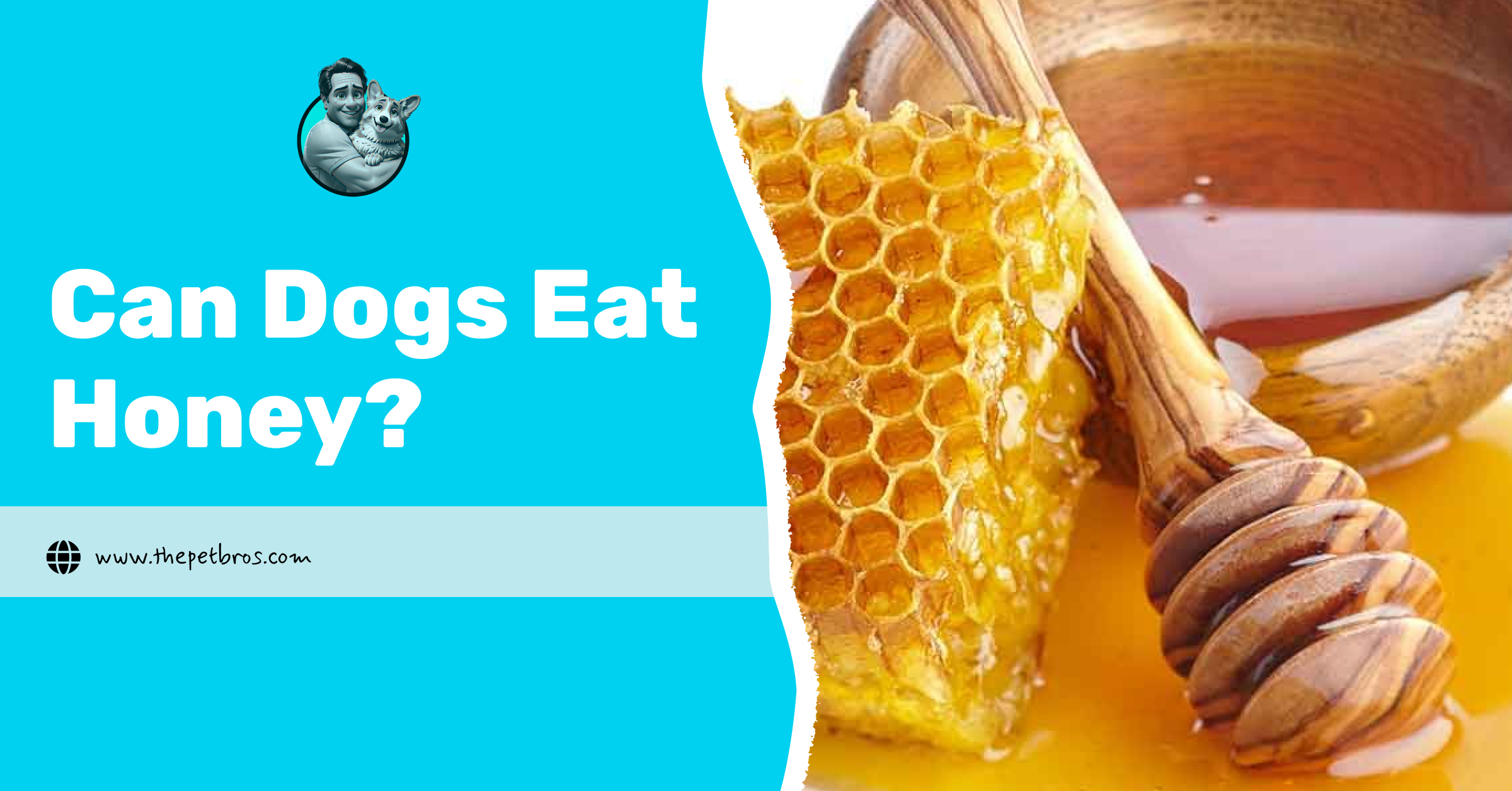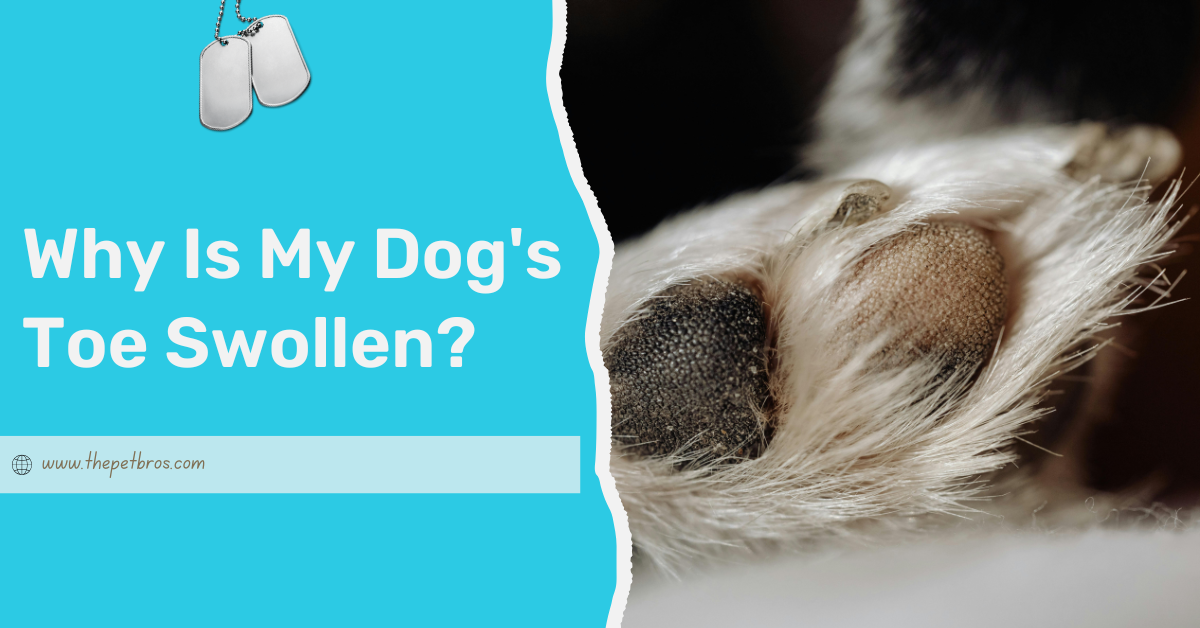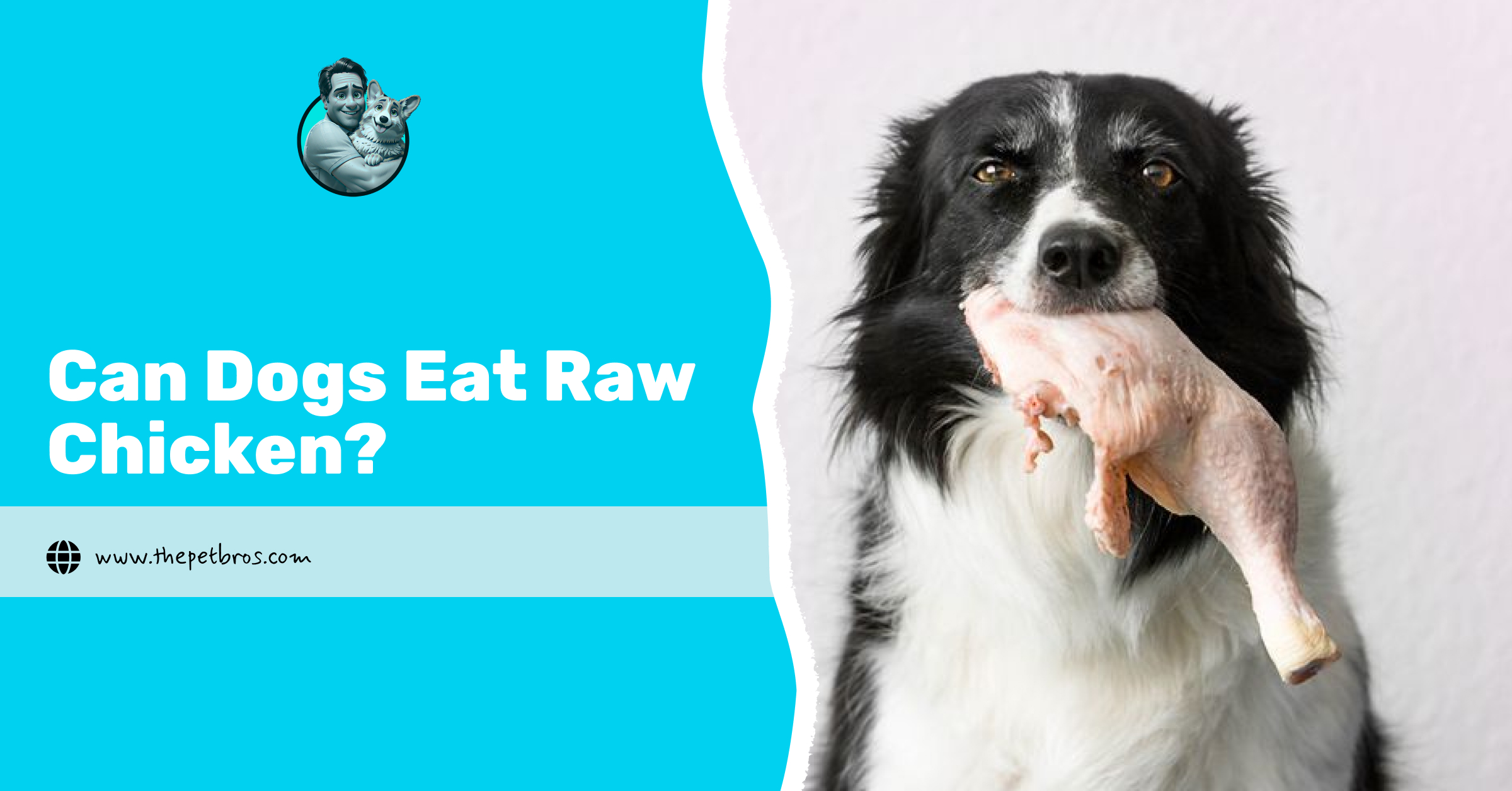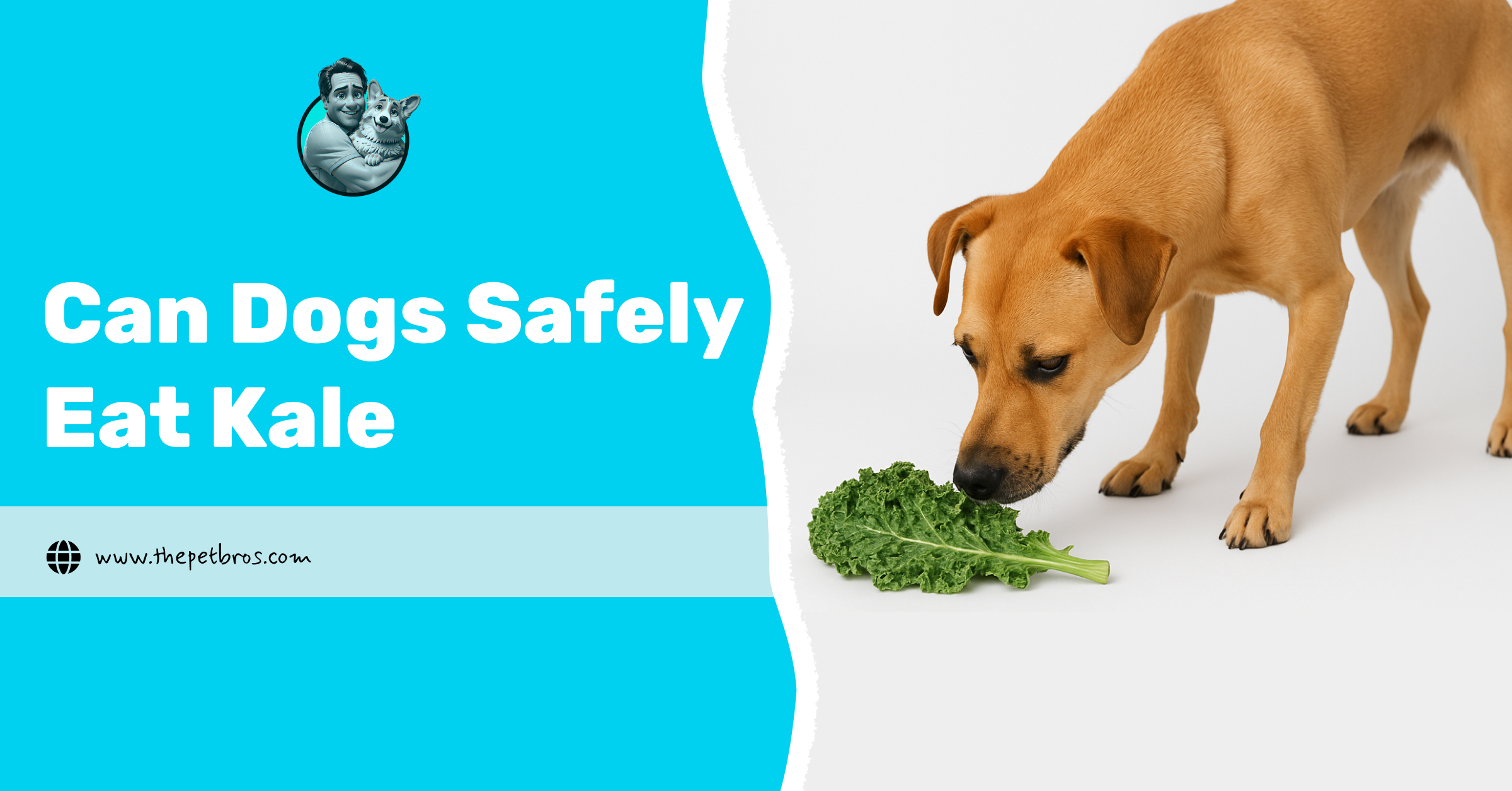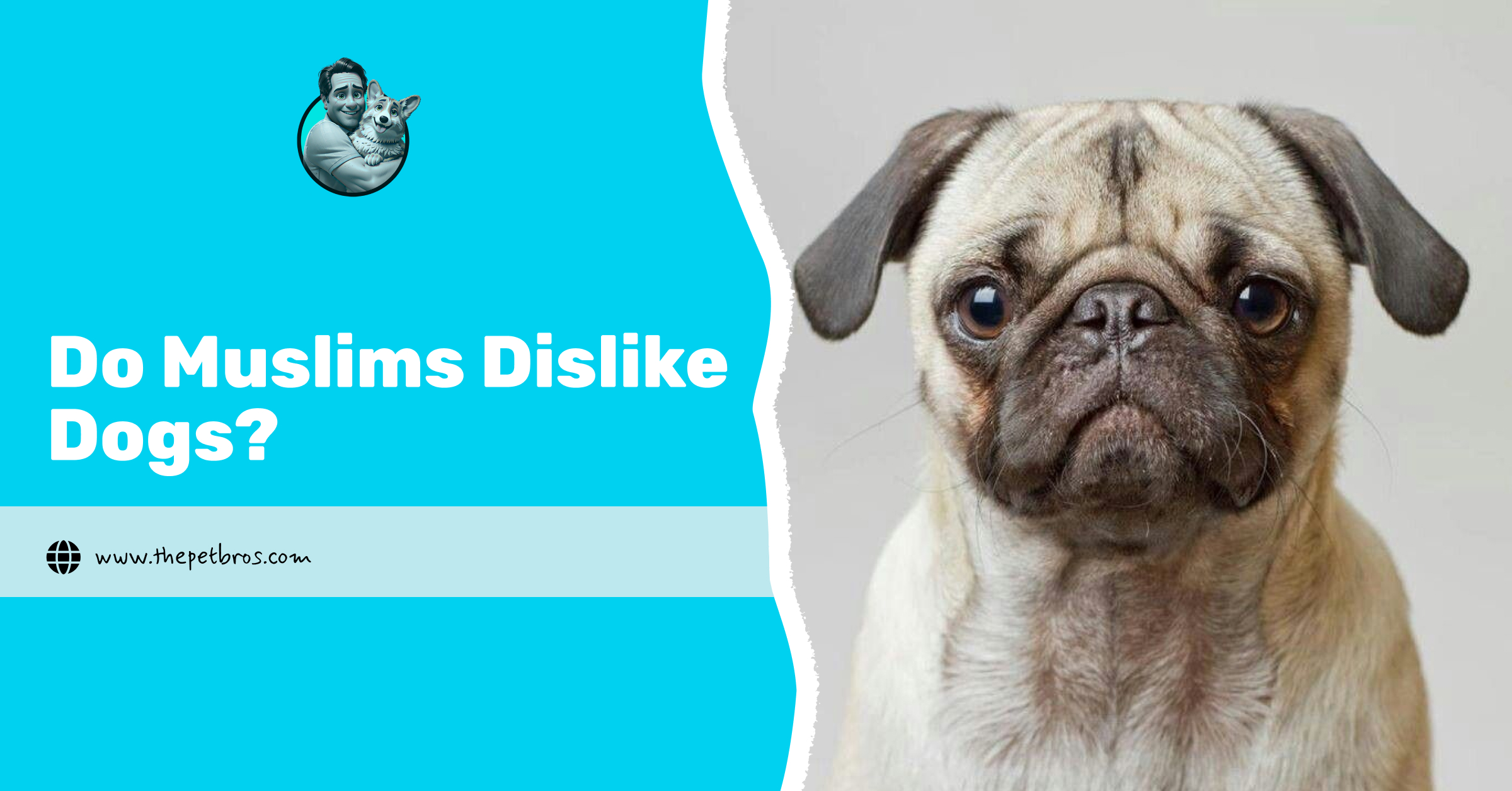If there were a list of human foods dogs would gladly steal, salmon would rank right next to roast chicken and anything you accidentally drop on the floor. That golden-pink fishy smell? Irresistible. So it’s fair to ask: can dogs eat salmon?
Yes, they can. In fact, salmon is one of the healthiest proteins your dog can eat. It’s packed with omega-3s that keep coats silky, joints flexible, and tails wagging. The secret, though, is in the prep.
Raw, smoked, or sauced-up salmon might land your pup in the vet’s office instead of the kitchen. Let’s break down the right way to share this super-fish safely, simply, and without the fishy consequences.
Is Salmon Safe for Dogs?
Yes, when cooked properly, salmon is one of the healthiest proteins a dog can eat. It’s full of omega-3 fatty acids, lean protein, and essential vitamins that strengthen your dog’s immune system and keep their skin and coat looking top-tier. But here’s the catch: not all salmon is created equal, and safety depends entirely on how it’s prepared.
Even cooked salmon isn’t for every dog. Some pups have fish allergies or sensitive stomachs that don’t handle oily proteins well. If you’re feeding salmon for the first time, start with a small portion and keep an eye out for itching, red skin, or swelling. When in doubt, your vet can help with simple allergy testing to make sure the fish fits safely into your dog’s diet.
To round out a healthy meal, pair your dog’s salmon with dog-friendly vegetables like broccoli, carrots, kale, celery, peas, or sweet potatoes.
Can Dogs Eat Salmon When It’s Raw?
Raw salmon might seem fresh and natural, but for dogs, it’s a hidden danger. Uncooked fish can carry a parasite called Neorickettsia helminthoeca, which causes salmon poisoning disease, a serious infection that attacks the digestive and immune systems. Dogs can develop symptoms like vomiting, diarrhoea, fever, and dehydration within days, and if untreated, it can become life-threatening.
If your dog accidentally eats raw salmon, contact your vet immediately. Quick treatment usually prevents serious complications. It’s also smart to ask about routine parasite checks or stool testing, especially if your dog likes scavenging around the kitchen or outdoors.
Can Dogs Eat Smoked Salmon?
Smoked salmon is not a safe choice for dogs. The curing and smoking process loads it with salt and preservatives, which can dehydrate dogs and strain their kidneys. Some smoked fish may also harbour bacteria such as Listeria that survive cold-smoking and can cause digestive infections or fever.
Even tiny servings of smoked salmon can upset sensitive stomachs, especially in smaller dogs. Stick to plain, fully cooked salmon instead of baked, poached, or steamed to keep the flavour and nutrients without the risk.
How to Cook Salmon For Dogs
Cooking salmon for your dog is simple once you know the proper steps. Here’s how to do it safely and deliciously:
- Start With Boneless Salmon: Choose plain fillets with no marinades or seasoning. Frozen salmon is fine too, just thaw it completely before cooking.
- Cook it Thoroughly: Bake, steam, or poach the salmon until the internal temperature reaches 145°F (63°C). This kills any bacteria or parasites that could make your dog sick.
- Skip the Extras: Don’t add butter, salt, oil, or spices. Dogs don’t need flavourings; the natural salmon taste is plenty rewarding for them.
- Cool and Flake: Let the salmon rest for a few minutes, then flake it into small, bite-sized pieces to prevent choking or overeating.
- Pair it With Healthy Sides: Mix small portions of salmon with dog-friendly veggies like carrots, peas, or sweet potatoes for added vitamins and fibre.
- Serve in Moderation: Treat salmon as an occasional meal booster once or twice a week to avoid excess fat in your dog’s diet.
- Store Leftovers Safely: Keep cooked salmon in the fridge for up to two days. If it smells off, toss it. Dogs deserve fresh food, not fishy surprises.
How Much Salmon Can Dogs Eat?
Cooked salmon is rich in omega-3 fatty acids and lean protein, but moderation is key. Most vets recommend feeding salmon once or twice a week, based on your dog’s size and activity level. Always serve it plain and boneless to avoid choking or infection risks. For dogs with allergies or sensitive digestion, start with small portions and watch for signs of itching, ear infections, or tummy upsets. A quick allergy check can help keep salmon a safe, healthy treat.
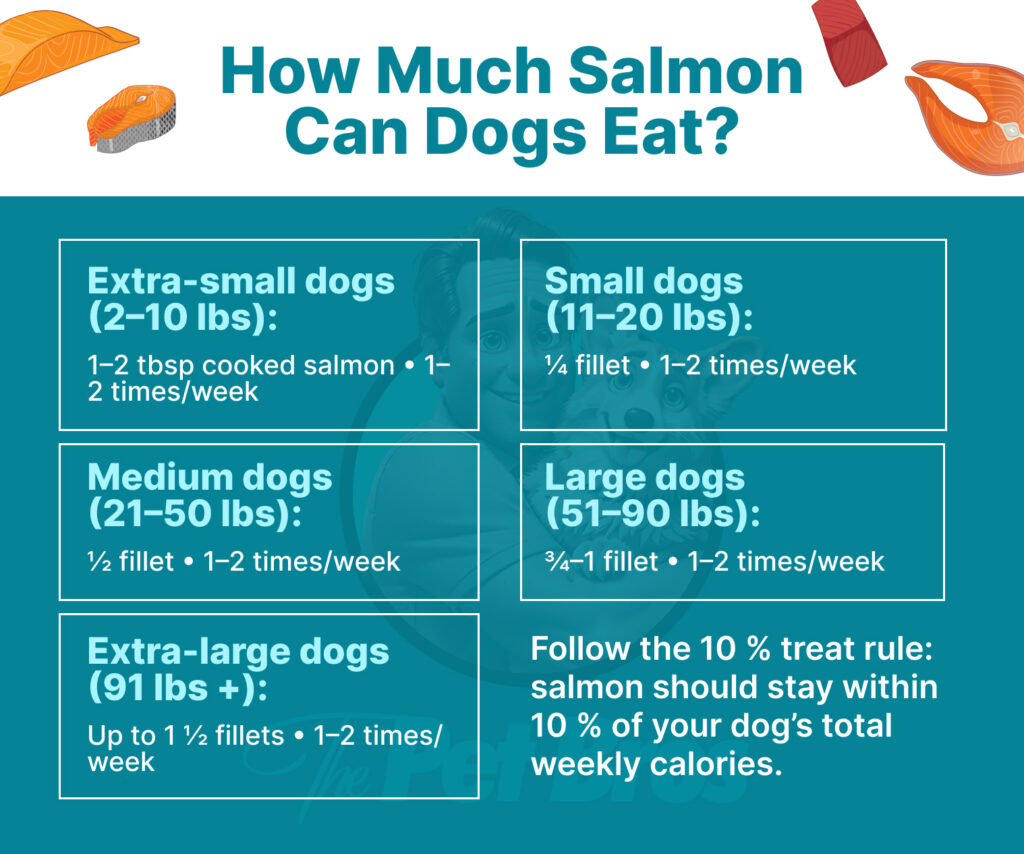
Conclusion
So, can dogs eat salmon? Yes, and it’s one of the healthiest proteins you can share with them. When cooked plain and served in moderation, salmon delivers essential omega-3s, lean protein, and nutrients that boost coat, joint, and heart health. Just remember to skip the seasoning, keep portions small, and make it an occasional treat rather than a daily meal.
Can Dogs Eat Salmon FAQs
Is salmon good for dog’s diarrhoea?
Cooked, plain salmon can help if tolerated well, but avoid it during active stomach upsets.
Is salmon better than chicken for dogs?
Yes, for dogs with poultry allergies, salmon is gentler and rich in omega-3s.
What is the one meat to never feed your dog?
Raw pork or fatty meats can carry parasites and trigger pancreatitis.
What is the healthiest meat to give a dog?
Lean options like salmon, turkey, and chicken breast are ideal in moderation.
Is salmon hard on a dog’s stomach?
Not usually, but its fat content can bother sensitive or pancreatitis-prone dogs.
What is the healthiest food to feed a dog?
A complete, vet-approved diet that includes balanced protein, carbs, and fats.
What dog food hardens stool?
High-fibre foods like pumpkin, brown rice, or vet-formulated digestive diets can help.






